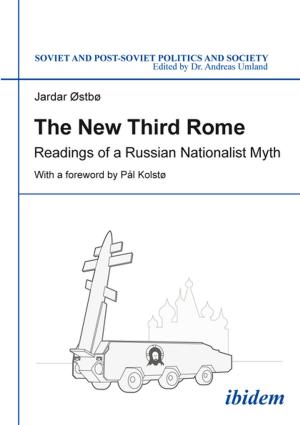Contemporary Life and Witchcraft
Magic, Divination, and Religious Ritual in Europe
Nonfiction, Social & Cultural Studies, Social Science, Sociology, Marriage & Family, Folklore & Mythology| Author: | Alexandra Tātāran | ISBN: | 9783838267784 |
| Publisher: | Ibidem Press | Publication: | April 5, 2016 |
| Imprint: | Ibidem Press | Language: | English |
| Author: | Alexandra Tātāran |
| ISBN: | 9783838267784 |
| Publisher: | Ibidem Press |
| Publication: | April 5, 2016 |
| Imprint: | Ibidem Press |
| Language: | English |
Witchcraft is very much alive in today's post-communist societies. Stemming from ancient rural traditions and influenced by modern New Age concepts, it has kept its function as a vibrant cultural code to combat the adversities of everyday life. Intricately linked to the Orthodox church and its rituals, the magic discourse serves as a recourse for those in distress, a mechanism to counter-balance misfortune and, sometimes, a powerful medium for acts of aggression.In this fascinating book, Alexandra Tataran skillfully re-contextualizes the vast and heterogenuous discourse on contemporary witchcraft. She shows how magic, divination, and religious rituals are adapted to the complex mechanisms of modern mentalities and urban living in the specific historical and social context of post-communist countries. Based on years of first-hand fieldwork, Tataran offers fascinating insights into the experience of individuals deeming themselves bewitched and argues that the practice can also teach us a lot about particular forms of adapting traditions and resorting to pre-existing cultural models.
Witchcraft is very much alive in today's post-communist societies. Stemming from ancient rural traditions and influenced by modern New Age concepts, it has kept its function as a vibrant cultural code to combat the adversities of everyday life. Intricately linked to the Orthodox church and its rituals, the magic discourse serves as a recourse for those in distress, a mechanism to counter-balance misfortune and, sometimes, a powerful medium for acts of aggression.In this fascinating book, Alexandra Tataran skillfully re-contextualizes the vast and heterogenuous discourse on contemporary witchcraft. She shows how magic, divination, and religious rituals are adapted to the complex mechanisms of modern mentalities and urban living in the specific historical and social context of post-communist countries. Based on years of first-hand fieldwork, Tataran offers fascinating insights into the experience of individuals deeming themselves bewitched and argues that the practice can also teach us a lot about particular forms of adapting traditions and resorting to pre-existing cultural models.










![Cover of the book Di chi tiene la penna: immagini di scrittori e scrittura nel romanzo italiano dal 1911 al 1942 [Italian-language Edition] by Alexandra Tātāran](https://www.kuoky.com/images/2015/march/300x300/9783838264691-9Jw4_300x.jpg)




![Cover of the book Thomas Mann und Ivan Olbracht [German-language Edition] by Alexandra Tātāran](https://www.kuoky.com/images/2015/march/300x300/9783838266633-2V4N_300x.jpg)